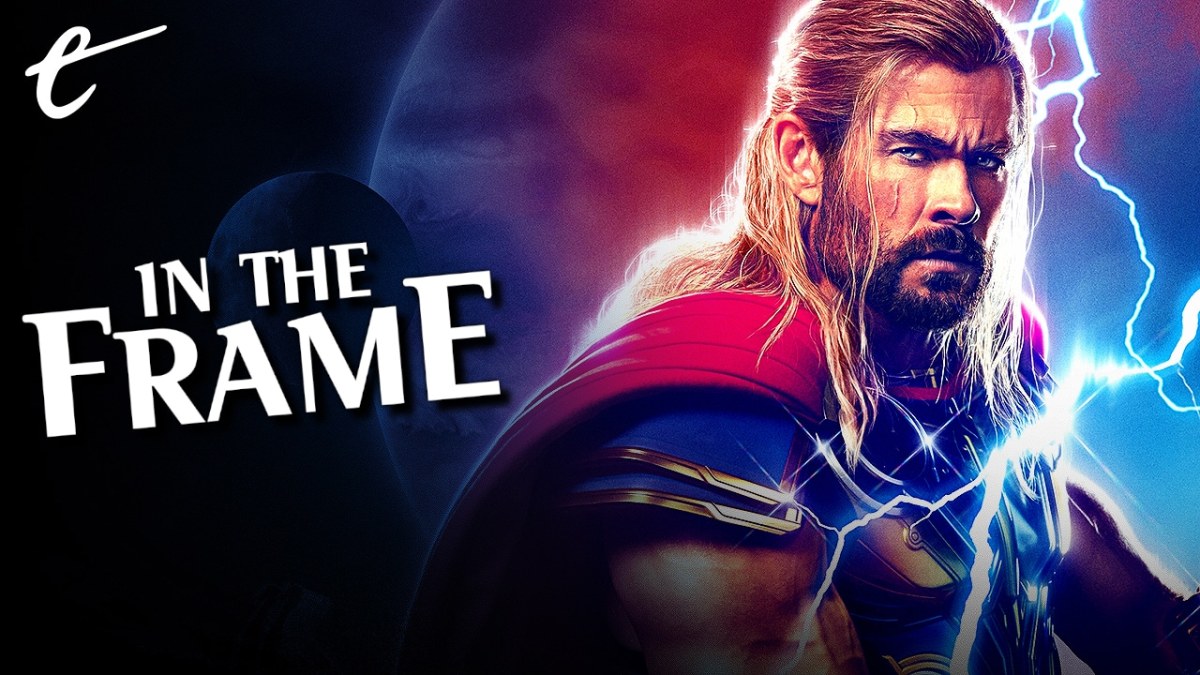There is a recurring joke in Thor: Ragnarok, in which the eponymous superhero (Chris Hemsworth) repeatedly asserts that he is the “strongest Avenger.” The movie consistently deflates Thor’s high opinion of himself, ultimately revealing that — at least in the mind of Tony Stark (Robert Downey Jr.) — Bruce Banner (Mark Ruffalo) is the strongest member of the team. Still, there is a solid argument for Thor as the best Avenger. At least, unlike many of his colleagues, he is actually a superhero.
One of the big recurring trends in the modern superhero boom that began with Bryan Singer’s X-Men and Sam Raimi’s Spider-Man has been the militarization of these spandex-clad heroes. The trend became particularly pronounced after Christopher Nolan’s Batman Begins established that a large part of Bruce Wayne’s (Christian Bale) arsenal was derived from technology built for the military, turning the Caped Crusader into something of a one-man paramilitary force.
There are any number of obvious reasons for this trend. Most obviously, the superhero boom emerged in the midst of the War on Terror. Critics have pointed out that so many of the generic “hole in the sky” set pieces of modern superhero blockbusters exist as strange and fantastical mirrors of 9/11. Even in terms of basic cinematic language, so much of the urban devastation in these films is shot in such a way that it evokes and recalls footage of those terrorist attacks.
This is particularly true of the Marvel Cinematic Universe, which was shaped by the success of Jon Favreau’s Iron Man. Reflecting the character’s comic book origins, Tony Stark is a weapons designer who is scarred in an overseas war. In the comics, it was the Vietnam War – at least originally. The film transposes the events to the Afghanistan War. Stark owns an arms company and builds a weapon of mass destruction that turns him into a superhero.
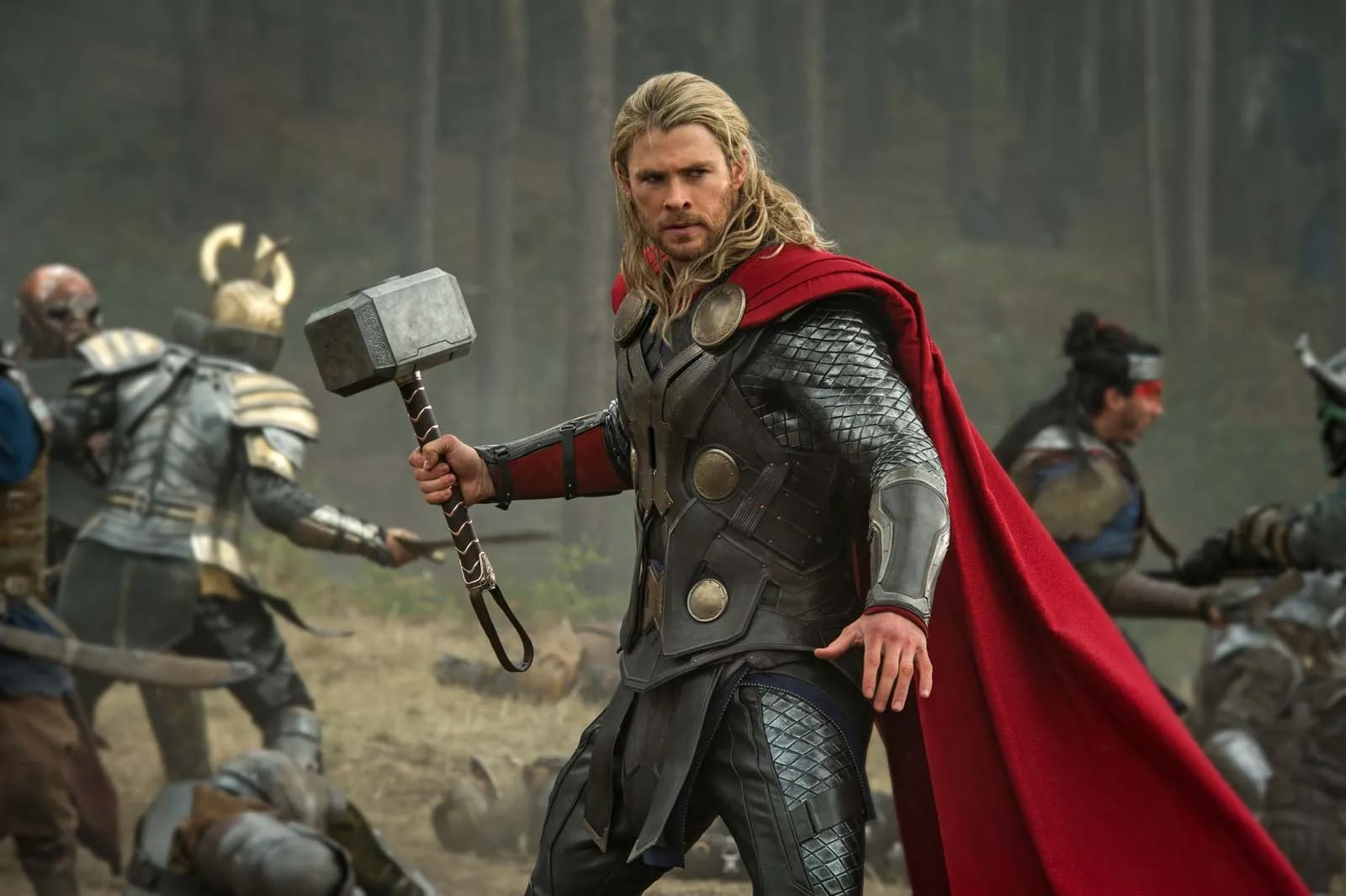
Stark is entangled in the American military-industrial complex, as are many of his contemporaries. Some of these roots were established back in the original comics. Steve Rogers (Chris Evans) was always a scrawny kid who wanted so badly to join the army that he volunteered for a super-soldier experiment. Bruce Banner (Edward Norton) had his origin altered slightly, so he no longer became a superhero through an obvious stand-in for the atomic bomb, but by testing super-soldier serum.
However, other superheroes within the shared universe are explicitly revised to tie them closer to the armed forces. While his comic book counterpart was a social worker, Sam Wilson (Anthony Mackie) is introduced as a veteran of foreign wars. Hank Pym (Michael Douglas) is reinvented as a former military asset, who even undertook assignments during the Cold War. Even teenage vigilante Spider-Man (Tom Holland) gets a suit designed by Stark with an “instant kill mode” and later inherits a fleet of drones.
Clint Barton (Jeremy Renner) is a former soldier, even though his comics counterpart was a carnie. Natasha Romanoff (Scarlett Johansson) retains her comics origin as a spy. While Carol Danvers (Brie Larson) always served in the Air Force, Captain Marvel leans so hard into that aspect of her character that it plays as a recruitment film. Even Stephen Strange (Benedict Cumberbatch) is recruited into an order that polices the borders of reality, with Kamar-Taj looking like a military academy.
Christopher Nolan was anxious about the militarization of the superhero genre. “This is too much power for one person,” opined Lucius Fox (Morgan Freeman) at the climax of The Dark Knight. The Dark Knight Rises concurs, with Bane (Tom Hardy) using Wayne’s resources to take control of Gotham, illustrating the folly of concentrating such power. In contrast, Black Panther features a heroic CIA operative (Martin Freeman) helping prevent a coup in a resource-rich foreign power.
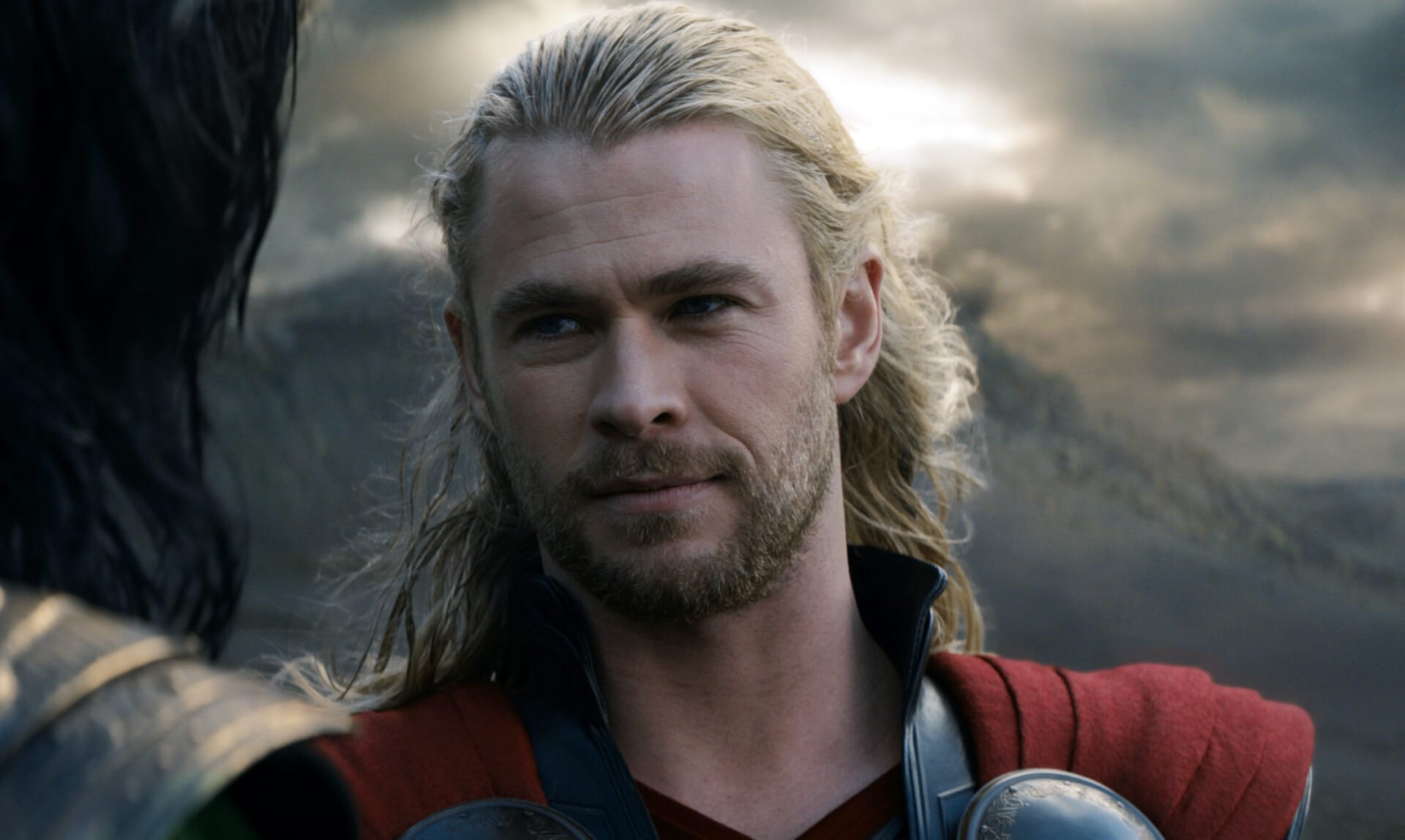
While his comic book counterpart largely operated at the fringes of the shared universe, allowing for rare exceptions like Secret War, superspy Nick Fury (Samuel L. Jackson) and his agency S.H.I.E.L.D. became the glue that held the cinematic shared universe forever. “The Avengers Initiative” originated as a project overseen by S.H.I.E.L.D. Even if the films are deliberately ambiguous about who exactly S.H.I.E.L.D. answers to, it is still a recognizably military organization.
Indeed, it is revealing that the central conflict within The Avengers is the push-and-pull between Steve Rogers and Tony Stark about what exactly the team is supposed to be. After the death of S.H.I.E.L.D. agent Phil Coulson (Clark Gregg), Rogers challenges Stark, “Is this the first time you lost a soldier?” Stark bluntly responds, “We are not soldiers.” The Avengers is very much a film about how superheroes should not be treated as instruments of the military-industrial complex.
This approach doesn’t stick. The Avengers franchise comes to be driven by writers Christopher Markus and Stephen McFeely, along with directors Joe and Anthony Russo. The extent to which they leaned into this militarization of superheroes is reflected in the titles of the first three of their four movies within the universe: Captain America: The Winter Soldier, Captain America: Civil War, and Avengers: Infinity War. Despite Stark’s protests, these superheroes sure fought in a lot of wars.
This is why Thor stands apart from so many of his contemporaries, particularly given the prism through which Hollywood tends to explore these characters. Thor works best as an old-fashioned superhero. Stan Lee claimed that he had been inspired to build a comic around Thor because he wanted to write “the biggest, most powerful superhero of all.” As superhero costumes grew even more militaristic, increasingly resembling body armor, Thor retained his vibrant red cape.
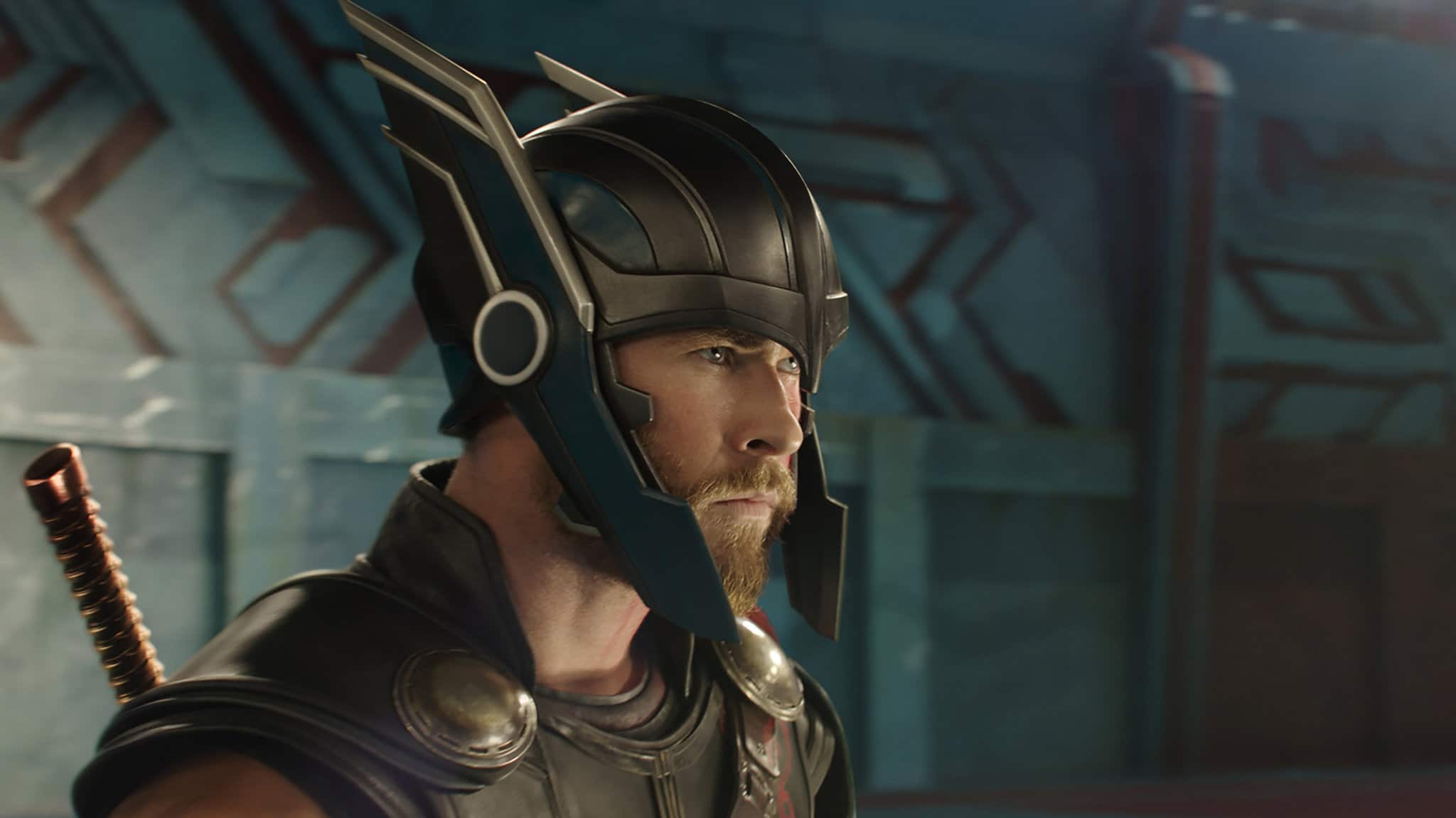
Kenneth Branagh’s Thor leaned into the fantastical elements of the character. As a child, Branagh loved the Thor comics because they stood in contrast to “all the American urban comics” of the era. He had a strong emotional attachment to Thor, singling out the character as compared to many other American superheroes “like Batman and Superman.” Branagh relished directing a traditional superhero adventure, even tilting the camera like he was filming an episode of Batman.
Branagh’s Thor is the closest that Marvel has come to producing a classic pre-9/11 superhero movie, with Jaimie Alexander likening even the set design of Asgard to Richard Donner’s Superman. Of course, Thor is the son of King Odin (Anthony Hopkins) and the plot is built around palace intrigue orchestrated by his brother Loki (Tom Hiddleston), but Thor is much less militaristic than Favreau’s Iron Man, Louis Leterrier’s The Incredible Hulk, or Joe Johnson’s Captain America: The First Avenger.
This may explain why Thor felt lost in the movies that followed. Despite being a founding member of the team established to fight his brother, Thor is a secondary character during The Avengers, maybe because he has nothing to add to the movie’s debate over the militarization of superheroes. Thor: The Dark World reframes Thor as a militaristic peacekeeper in the disorganized nine realms, fighting the last battle of his grandfather’s genocide of the Dark Elves. The result is underwhelming.
Thor sits out the events of Civil War, with a comedic short film revealing that he took “some me-time” by traveling to Australia and moving in with a civilian named Darryl Jacobson (Daley Pearson). Thor doesn’t just shun the militarism of Earth’s superheroes; he also eschews the trappings of Asgardian royalty. Thor is very much a child of privilege, heir to the throne of Asgard. However, Ragnarok goes out of its way to have Thor destroy Asgard following his father’s death.
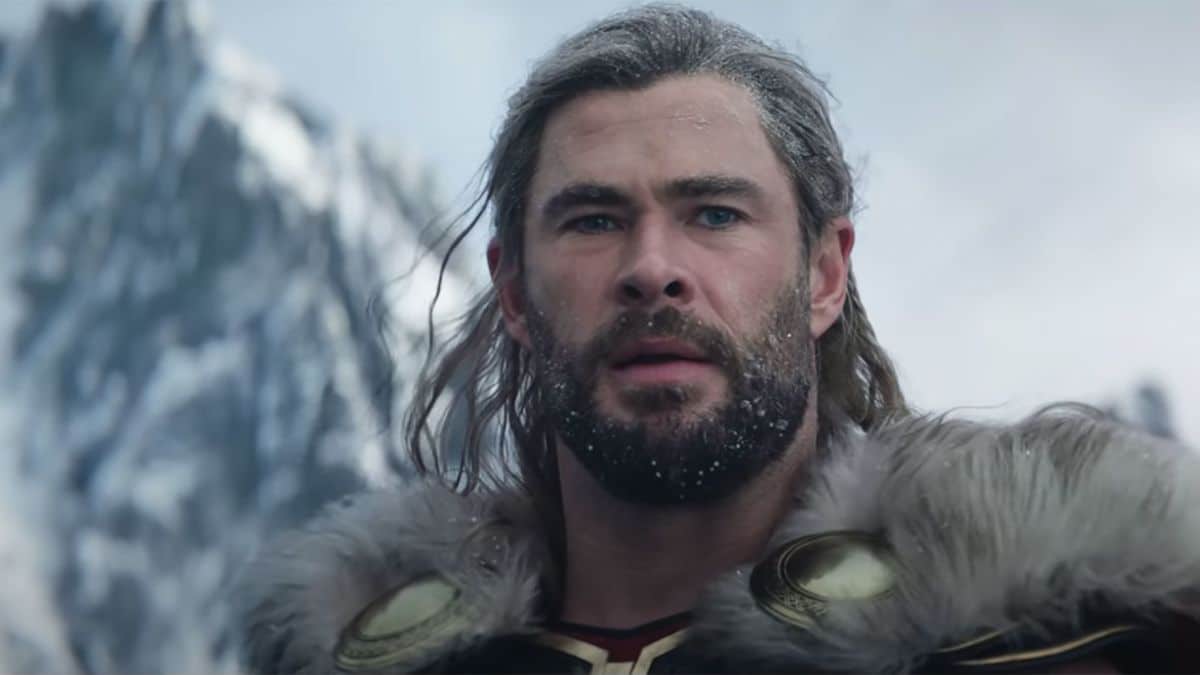
Rejecting the approach taken by The Dark World, and hearkening back to Branagh’s approach in Thor, Taika Waititi’s Ragnarok leans heavily into the idea of Thor as a character who loves being a superhero. Repeatedly over the course of the film, Thor explains his motivations and justifies his actions by stating, “Because that’s what heroes do.” While the film has a sense of humor, it also buys into Thor’s philosophy. Thor isn’t fighting a war or leading an army. He is being a superhero.
Indeed, Ragnarok can be read as a radical postcolonial parable that deconstructs the imperialist fantasies baked into myths like Asgard. The movie reveals that Asgard is literally built atop the tombs of fallen soldiers, so Thor’s decision to allow it to be consumed in an epic battle between Hela (Cate Blanchett) and Surtur (Clancy Brown) reads as a rejection of the idea of superheroes as an extension of state military power. They can be so much more.
Of course, Thor inevitably ends up caught in the gravity of Infinity War and Endgame, but neither film knows what to do with him. Infinity War bookends with Thor fighting Thanos (Josh Brolin), but he is largely isolated from Rogers’ attempts to build an army. In Endgame, Thor serves as unfunny comic relief, reduced to a series of fat jokes. Thor also abandons the refugees of Asgard when they need him most, rejecting the humanism of Ragnarok.
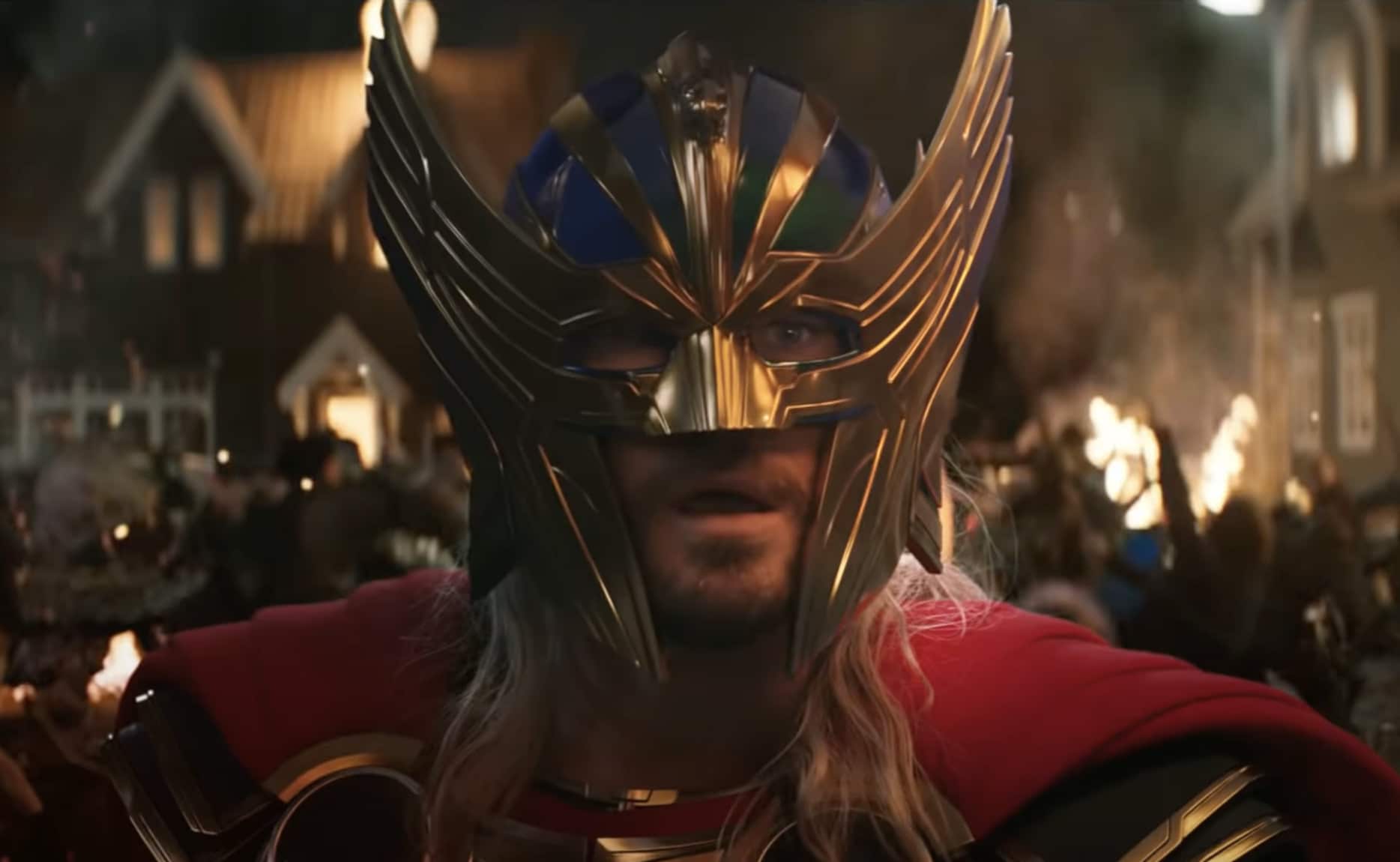
To be fair, this is the reality of modern franchise filmmaking, where a character is pulled in various directions by the needs of multiple writers and directors working on multiple projects with multiple objectives. More than most of his contemporaries, Thor has been caught in the push-and-pull gravity of the shared universe, bouncing between creative teams with very different ideas about how best to use the character in a given movie.
Still, Thor stands out from many of the other superheroes in the shared universe because he has rarely been characterized as a soldier or a warrior, despite the obvious historical precedent for a Norse deity. Instead, the projects that have used Thor well have treated him as an archetype of a purer approach to superheroism, one that is not entangled with the military-industrial complex to the same extent as so many modern superheroes.
In June 2020, Richard Newby argued that modern superhero films often exist to reinforce fantasies about existing power structures. Branagh’s Thor and Waititi’s Ragnarok understand that superheroes work best as fantasies untethered to establishment power fantasies. Hemsworth’s Thor is perhaps a truly mythic creature: a good, old-fashioned superhero.

